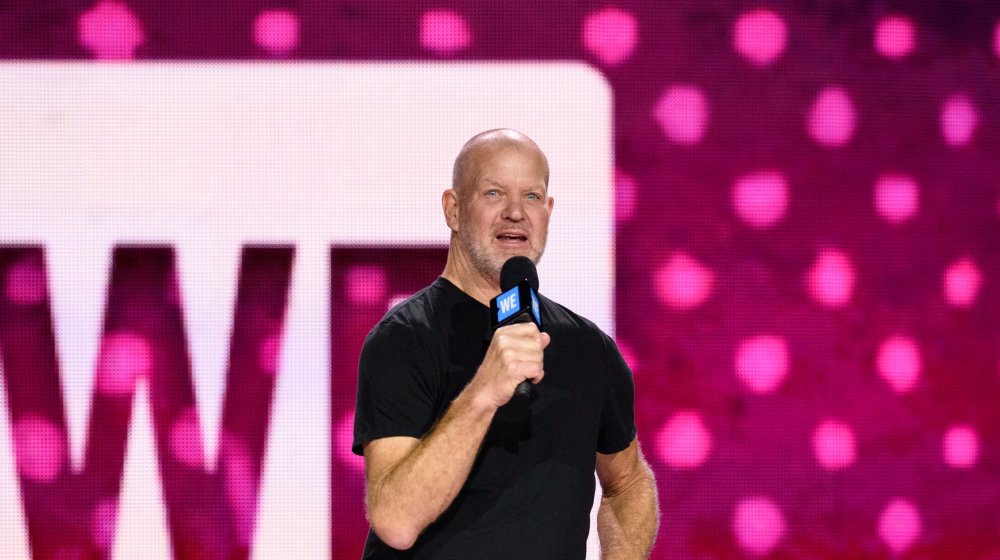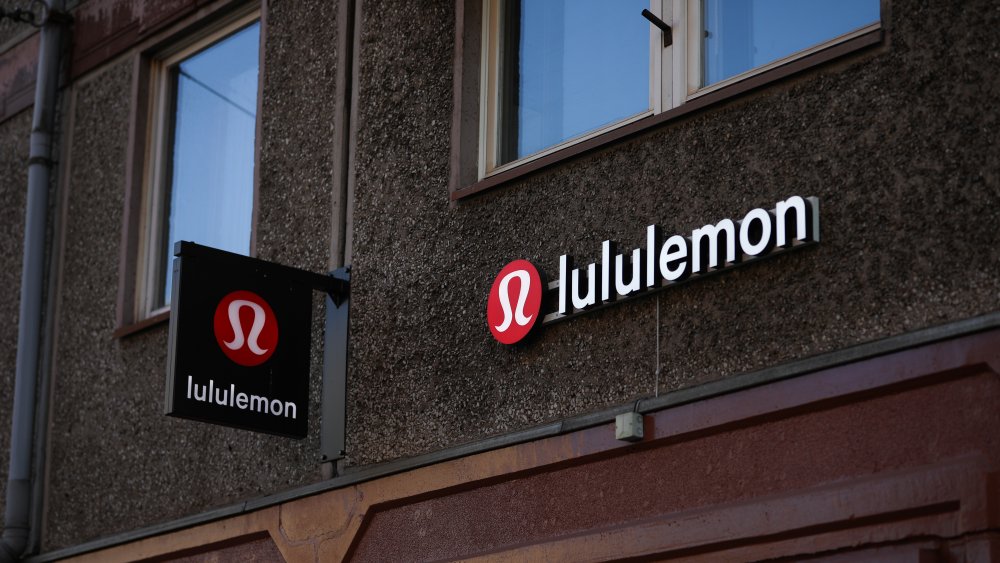The Truth About Lululemon's Founder
The story of Lululemon founder Chip Wilson is tied closely with that of the company he established in 1998. But just how much do you really know about the man who put yoga pants on the map and helped turn America into the land of the stretchy waistband?
Wilson says the idea for the company came to him when he took part in his first yoga class at the age of 42 and saw people practicing in baggy clothes. He also noticed the instructor was wearing dance clothing, which was described as thin and sheer (via Vox). Neither seemed ideal for working out. At that time, Wilson said that people wore their worst clothing to the gym, but that this habit was leading to problems. "Yoga is about sweating. As the cotton got wet, it started to bind. On top of that, the instructor couldn't really align the body very well," he told CNN.
Wilson saw a market for women's athletic apparel
The class also made Wilson realize there could be a market for athletic clothing for women. In his book Little Black Stretchy Pants, Wilson says he wanted to create a high performance fabric that could deal with issues including transparency and camel toe. He also wanted to make it thick enough to hide any imperfections. Wilson even talks about being involved in a discussion over seam lines. "Women told me they preferred side seams because when they looked in the mirror, side seams slimmed their hips. I wanted to move the side seams to the back to frame the bum and make the bum appear smaller. I persisted because I believed that eventually, men would tell women the pants looked great without really understanding why." (via Vox)
Wilson had just the right material in mind. During his time as the owner of a specialty snowboarding clothing company, he had developed a stretch fabric which was used to make pricey underwear — and he thought it might be perfect for yoga pants. "If I could eliminate the middlemen, have my own retail stores and sell the pants for $90 to $95, I bet you women will buy billions of them," he tells the New York Times Magazine. Lululemon ultimately went public in 2007 (via Forbes).
Wilson became known for his outrageous remarks
Wilson's first brush with controversy came with the admission that Lululemon's name was made up to attract the Japanese market. Wilson says. "I recognized that the Japanese consumer liked a name with an L in it because the letter isn't in the Japanese language. It sounded American. So I thought if I ever have another company I am going to put three L's in it," he said. While Wilson is quoted in 2004 as saying how it was funny how Japanese clients struggled to say "Lululemon", he later tells The New York Times Magazine that he never said it.
Wilson's $98 yoga pants were marketed to just one segment he called the "Super Girls". These women were described as the best of the best, fit, and be at the peak of health. A "Super Girl" was also fashionable and could afford to pay for quality (via Vox). But that demographic appear to leave room for plus-sized women. Wilson said it needed 30 percent more fabric to make plus-sized clothing, which meant he would have to charge more — and he didn't want to do that either. "It's a money loser, for sure," he told the Calgary Herald in 2005 (via The Huffington Post) "I understand their plight, but it's tough."
Wilson's tactless comments kept Lululemon in the spotlight
It just gets worse from there. Wilson alienated Canadian businessmen when, according to people who attended a Business Alliance of Local Living Economies in Vancouver, Wilson told delegates that children should be allowed to work in factories because they get wages as a result. He also said 12- and 13- year-olds in Canada should be allowed to find work in local factories, instead of collecting handouts. "I look at it the same way the [World Trade Organization] does it, and that is that the single easiest way to spread wealth around the world is to have poor countries pull themselves out of poverty," Wilson said (via The Tyee).
And when his core group of loyal customers began complaining about clumps of fuzz or pilling after a few years, Wilson brushed it off with more body shaming comments: "They don't work for some women's bodies ... it's really about the rubbing through the thighs, how much pressure is there over a period of time, how much they use it." (via Business Insider)
After Lululemon spent too much time in the spotlight for its founder's tactless remarks, he resigned as the company's chairman in 2013 and left the board altogether in 2015 (via CNBC). Today, Forbes says Wilson is the executive director for his family holding company, Hold It All, which manages real estate and private equity holdings, including shares of Lululemon stock — which constitutes a majority of his fortune.



